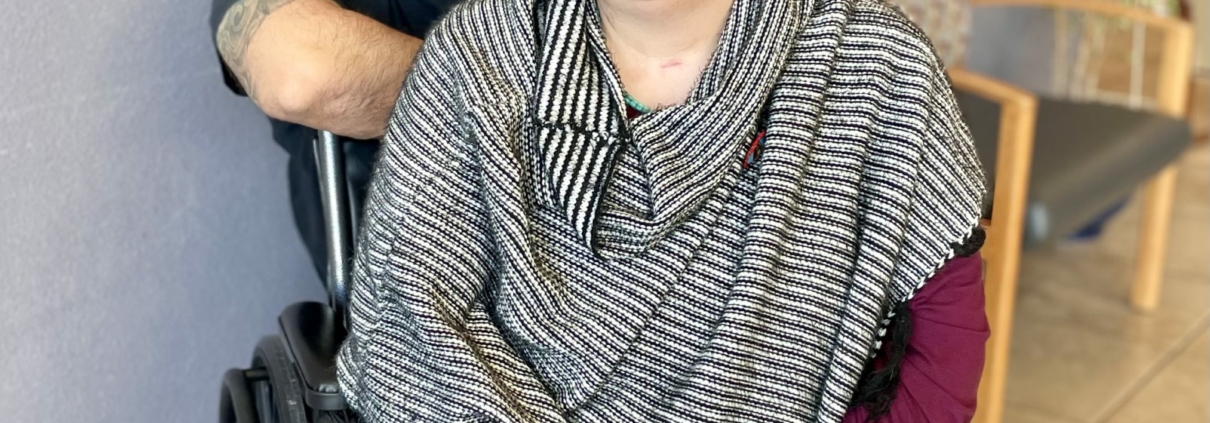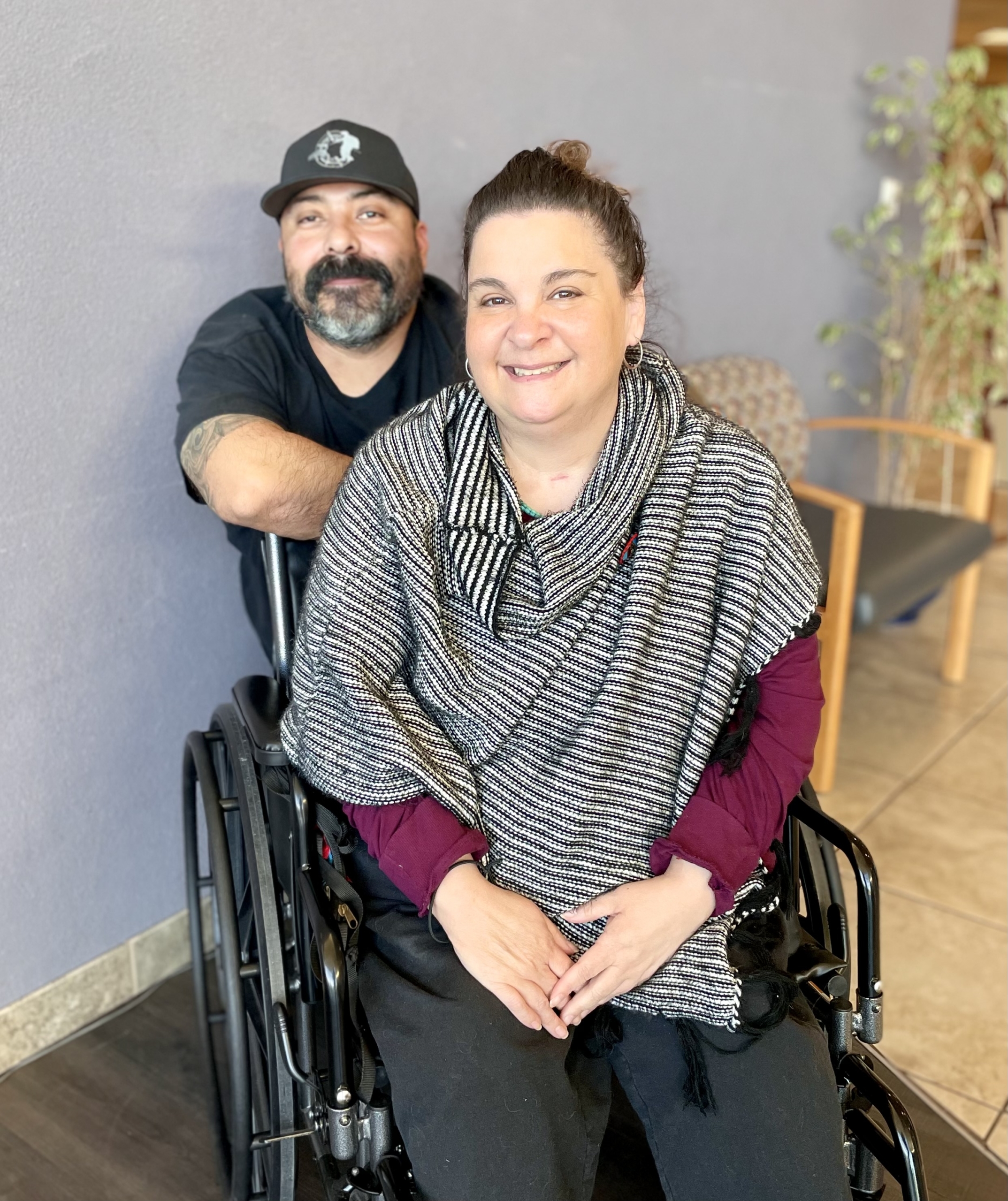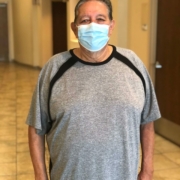Vanessa Amaro Hinojosa
October 4, 2021, is a day that will forever be ingrained in the Hinojosa family’s minds and hearts.
Feeling a bit unwell, Vanessa Amaro Hinojosa thought she simply had the common cold. But things rapidly turned for the worst. In what seemed like an instant, Vanessa was admitted to the hospital, intubated, and sedated. She had contracted COVID-19, and like thousands of others, Vanessa had no idea if she would ever leave the bed again, let alone live.
Before COVID, Vanessa enjoyed life as a stay-at-home wife and mother. She loved the outdoors, spending time with her family, her two favorite dogs, and cooking tacos. Basics like mopping the floors and doing the dishes were part of her everyday life. But after COVID, Vanessa couldn’t even walk, let alone stand.
Since the diagnosis, Vanessa has leaned on her family, especially her husband. Ever since that fateful day, he has been by Vanessa’s side and a relentless advocate for her recovery. With an emotional exhale and a look of encouragement from her husband, Vanessa attempted to recall how long and difficult her journey had been.
Or at least as much as she could.
Unfortunately, COVID took away not only Vanessa’s motor functions but her cognitive memory, too. As a result, Vanessa has no memory of her stay at Advanced Care Hospital of Southern New Mexico — or anything else over an approximately two-month span. Though the memory deficit creates frustration, barriers, and unending questions, Vanessa also sees the blessing of not remembering the hardest days.
Vanessa continues to make progress in her recovery and is grateful to the ACHSNM and Rehabilitation Hospital of Southern New Mexico teams. “Without the support, guidance, patience, and most importantly the encouragement of the therapists on campus, I would not be able to complete simple tasks that I once took for granted, like mopping,” she stated.
Great suffering can also bear great fruit, and Vanessa’s story is no exception. In speaking with her, the staff at ACHSNM and RHSNM gained a deeper understanding of the stigma behind having COVID-19 and how it can make patients feel uncomfortable and even ostracized. As a result of Vanessa’s feedback and recommendations, the campus developed a respiratory support group. The new support group will be similar to the campus’s stroke support group, inviting patients to share their experiences and support each other. When safe to do so, the group will also be open to the community.
After a combined 70 days on campus, Vanessa discharged home to her family. She continues outpatient therapy to advance her recovery further. Vanessa most looks forward to no longer needing her wheelchair, enjoying the fresh air of her backyard, and being with her family. That, for Vanessa, is the definition of success.







Leave a Reply
Want to join the discussion?Feel free to contribute!